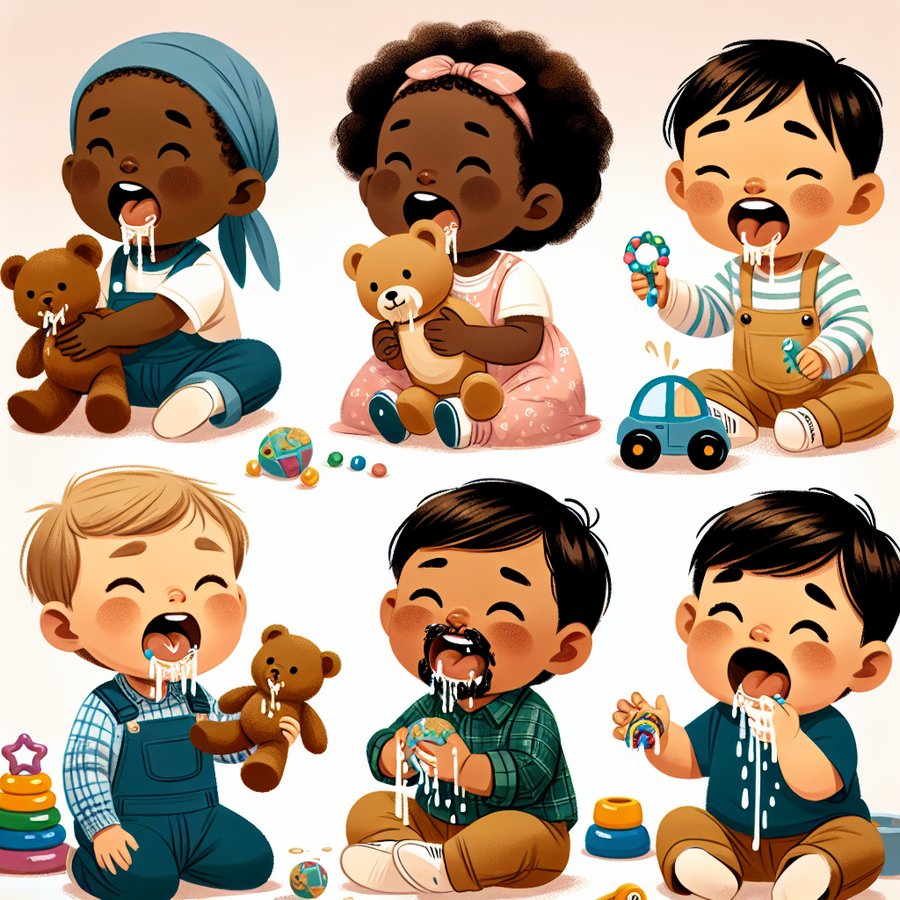Drooling is a common occurrence in babies, but it can sometimes leave new parents wondering if it’s normal or a sign of something more serious. This guide is designed to dive deep into the topic of baby drooling, exploring its causes, offering management tips, and advising when to seek help from a healthcare provider.
What Causes Baby Drooling?
Understanding the reasons behind baby drooling can help parents manage the situation more effectively. The primary cause of drooling is the development of salivary glands. Babies start to produce more saliva at around 2 to 3 months of age, preparing them for solid foods and aiding in digestion. Teething is another common reason for increased drooling, as the saliva helps soothe the gums.
Other causes can include exploring objects with their mouth, which is a natural part of their development. However, excessive drooling can also be a sign of other health issues, such as acid reflux, oral thrush, or teething issues. It’s essential to monitor the drooling pattern and consult with a pediatrician if concerned.
How to Manage Baby Drooling
Managing baby drooling involves keeping the baby comfortable and preventing skin irritation. Using soft, absorbent bibs can help keep their clothes dry and reduce skin irritation. Changing the bibs frequently and applying a gentle moisturizer or barrier cream around their mouth and chin can also prevent chapping and rashes caused by saliva.
Encouraging regular swallowing by offering them water (if appropriate for their age) and ensuring they’re well-positioned during feedings can also reduce drooling. If teething is the cause, providing teething toys or cold washcloths can offer relief and help manage the drooling.
When to Consult a Healthcare Provider About Drooling
While drooling is typically a normal part of development, there are times when consulting a healthcare provider is necessary. If the drooling is excessive and accompanied by other symptoms such as fever, irritability, or feeding difficulties, it may indicate an underlying condition that requires medical attention. Conditions like acid reflux or oral thrush can cause excessive drooling and need to be treated by a professional.
Additionally, if there are concerns about developmental milestones or if the drooling persists beyond the toddler years, it’s crucial to seek the advice of a pediatrician. They can assess whether the drooling is within the normal range or if it warrants further investigation.
Enhancing Your Baby’s Comfort and Well-being
Beyond managing drooling, ensuring your baby’s overall comfort and well-being is essential. Regular check-ups, staying up-to-date with vaccinations, and monitoring their development can help keep your baby healthy and thriving. For more information on other common baby concerns and how to address them, you might find resources like breastfeeding tips and diaper rash management helpful.
In conclusion, while baby drooling is mostly a benign and temporary phase, understanding its causes, knowing how to manage it, and recognizing when to seek professional advice are key to navigating this aspect of your baby’s development confidently. Always remember, each baby is unique, and what works for one may not work for another. Keeping an open line of communication with your healthcare provider will ensure your baby gets the best care possible.













